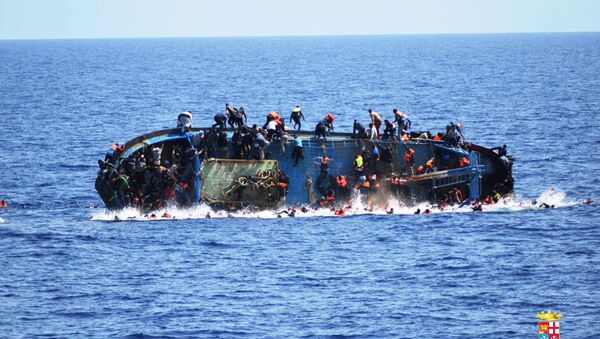"We have to prepare better for a crisis," Frontex director Fabrice Leggeri told Welt am Sonntag.
Leggeri said that the scenarios for the stress test have yet to be determined, but they are expected to include the protection of borders at sea, on land and in the air. Several European governments, including those of Germany, Greece, Finland, Slovenia and Romania, have reportedly already agreed to take part in the test.
"We want to see how well member states are prepared to deal with a crisis situation on Europe's borders," Leggeri explained.
The proposal comes amid a recent rise in the number of migrants arriving in Europe across the Mediterranean Sea. Earlier this month, Frontex reported that in July, the number of migrants arriving in Italy increased to almost 25,300, up 12 percent when compared to the same month of 2015.
The increase brought the total number of migrants detected in the Central Mediterranean in the first seven months of 2016 to nearly 95,000.
That figure is in line with the number of people who arrived in the region in the first seven months of 2015. In total, more than one million refugees and migrants reached Europe across the Mediterranean and Aegean in 2015, mainly arriving in Greece and Italy.
This year, the number of migrants arriving in the Eastern Mediterranean, especially the Greek eastern islands in the Aegean, has decreased dramatically thanks to the agreement the EU signed with Turkey earlier this year, and Macedonia's application of stricter border controls.
Since the EU-Turkey deal went into effect in March, only 8,500 migrants have been detected in the Eastern Mediterranean region, compared to nearly 151,000 in the first three months of 2016.
The journey across the Mediterranean appears to have become more treacherous. In 2015, 3,735 people who had tried to reach Europe went missing, and are believed to have drowned. According to the International Organization for Migration (IOM), up to August 24 this year, 3,165 people were reported to have died or gone missing in the attempt to reach Europe.
"The rising number of deaths is probably due to the fact that people smugglers want to increase their profits and are sending migrants on boats that are not seaworthy," Frank Laczko, director of IOM's Global Migration Data Analysis Center in Berlin, told Welt am Sonntag.




